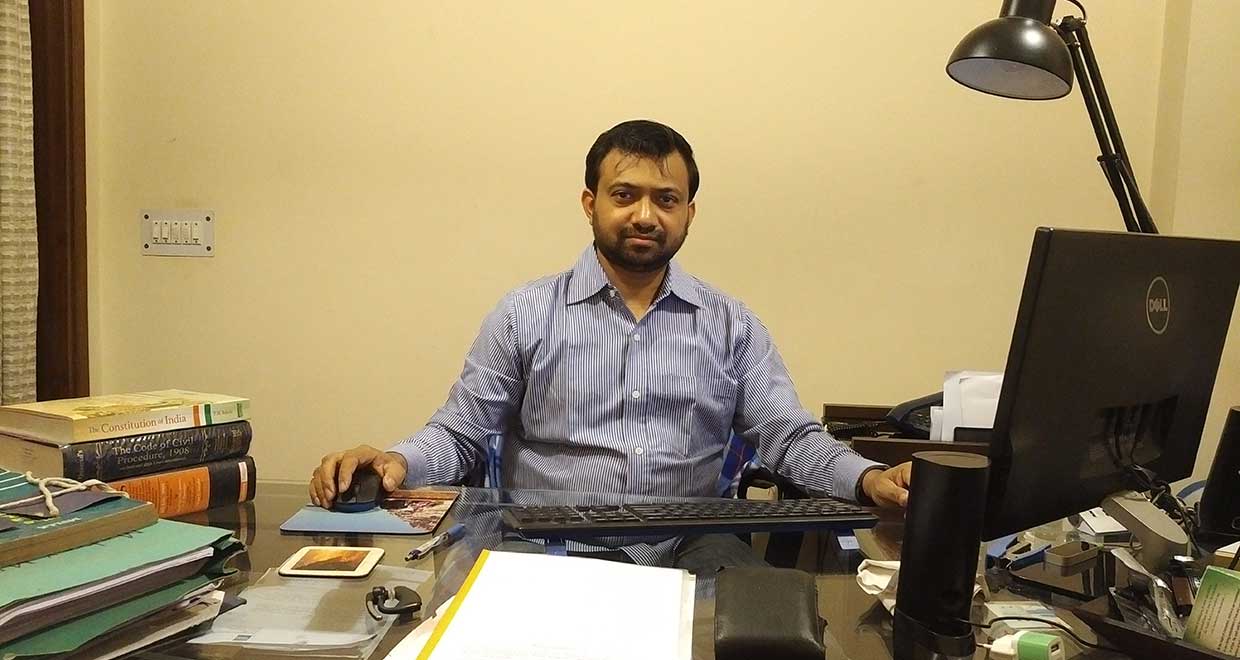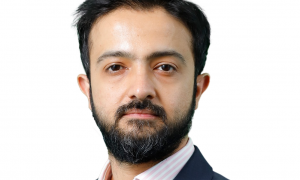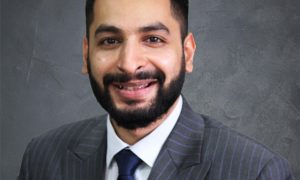Anirban Sen graduated from Symbiosis Law College, batch of 2004. After serving at the Calcutta High Court as Advocate for three years, he went on to purse his Masters from George Washington University Law School, specialising in Intellectual Property Law. He is admitted to the New York State Bar Association as well as the American Bar Association. He is currently Advocate at the Courts of Delhi.
In this interview we speak to him about:
- Marrying technology with law
- Studying in the US
- His experience in IP Law
How would you like to introduce yourself to our readers?
I am an all-round general litigation lawyer although I have specialised in both IP and Technology laws as well as Media and Privacy laws. My hobby had been to build electronic gadgets since my early school days, and later to write computer code. In some ways I think I still know more about computers and technology than I know about law. However, having actually studied and practised law for so many years, I enjoy the opportunity to explain one field of knowledge to people from the other field. Usually, technical persons do understand the law to some extent, but usually lawyers fail to move beyond the basics of technology. Hopefully, this will change soon.
What is unique about the B.S.L., LL.B course that you undertook, and how did it contribute to your career in law?
The B.S.L., LL.B. course is a 3+2 year course which was available at Symbiosis Law College under Pune University. There was a two-fold advantage to this course. As a science student in 12th standard, I had never studied subjects like Sociology, Political Science or Economics which create a good base in the understanding of law. Secondly, there was an option to just get a B.S.L. course and then study a different postgraduate degree. The unique advantage in studying towards a B.S.L. degree is that the subjects help your understanding of the law and its social implications.
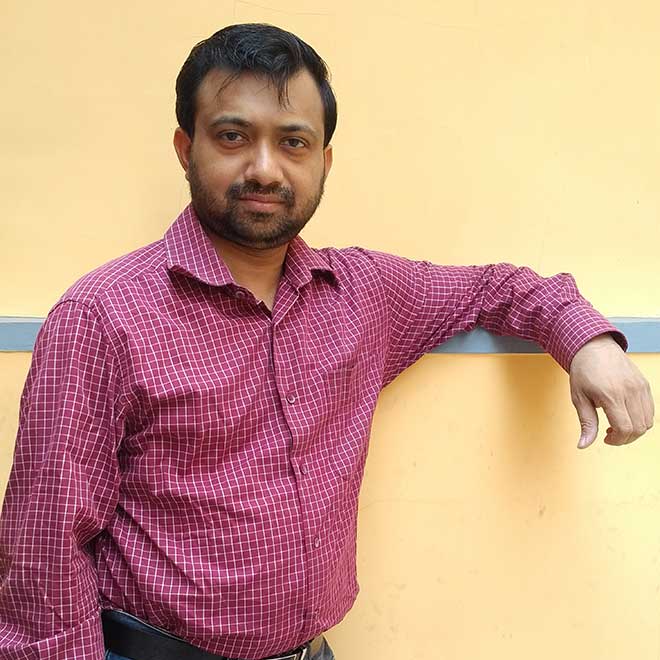
To what extent does one’s GPA affect one’s chances of landing jobs in top firms?
Grades are unfortunately very important. It doesn’t matter if you get good grades, but very bad grades will make you look poor in the corporate law world. Of course a better grade may just get you that interview that you have been eyeing, but internships hold more value in deciding who would be hired. Of course, if you interested in a career in litigation and want to start apprenticeship under an advocate, what matters most is your understanding of the courts, followed by knowing how and where to look up the relevant law.
What subjects did you take particular interest in during your law school days?
As far as law school (LL.B.) degree goes, I did not take particular interest in any one subject. Of course, I found Constitutional and Administrative Law to be the bedrock of litigation, but subjects such as Evidence and the Indian Penal Code were interesting too. Interest in a subject may not affect career choice in India but rather how much of what you know.
What were the activities, academic or otherwise, that you undertook in your law school days which in your opinion have shaped you and your career?
For me it was having a keen mind that shaped both me and my career. Those days there weren’t that many options. I wasn’t particularly interested in mooting. But I did read, a lot. Mostly news and current affairs. Those days there was no Google or Facebook or Twitter. News sites and periodicals kept the interest alive. I also kept up my interest in building electronic gadgets and writing computer programs which later helped in realising that lawyers and technophiles are largely a mutually distinct group. During my Masters’ degree, I wrote a paper on governing virtual reality given the speed with which immersiveness of artificial, interactive media was increasing. Yes, in India this may take some time to evolve, but once the prices come down, there would be rapid adoption and the law would be far behind.
Who was your mentor, or main source of inspiration who motivated you all along the way?
I did not really ever have a mentor or single source of inspiration. I have worked with many different lawyers with different philosophies towards life. However, I found my father’s way of working to be the most balanced in terms of both working hard and enjoying life. Although he is a Barrister-at-law and Senior Advocate, he can mix with anyone with ease and regularly takes out time to visit new and interesting places every year and I am happy to accompany him.
What kind of internships did you engage in during your student years?
I did only three internships in my last two years of college, each in a different city. The different environments of different cities also contribute towards one’s career. Since each was a different type – firm, individual, and Delhi litigation (Supreme Court), and offered me a unique perspective at the time and age, I wouldn’t trade one for the other.
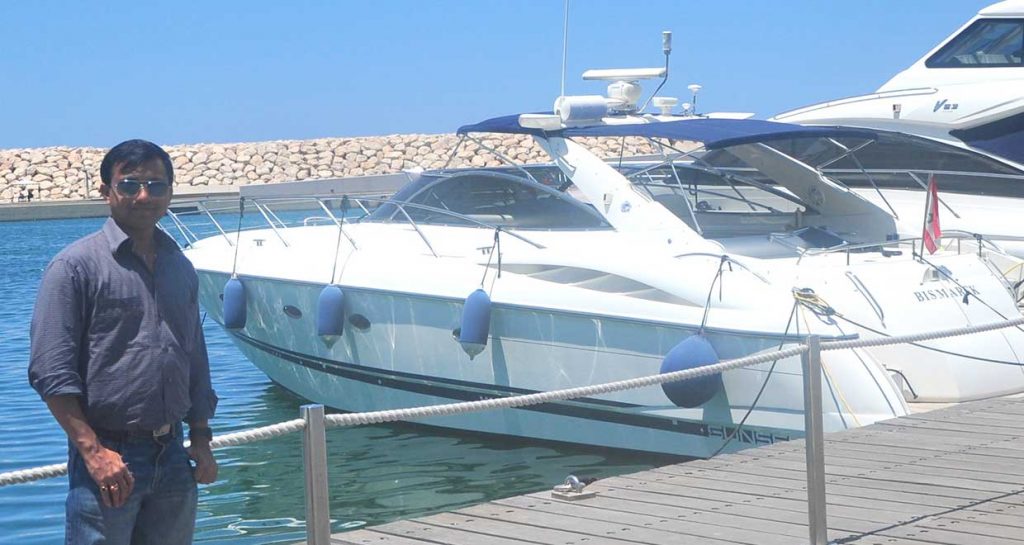
Would you say higher studies are relevant for a career in litigation?
LL.M.s per se really don’t have much value in litigation. However, a good college (at least in the U.S.) imparts far more knowledge than a five year course in law here does and I would highly recommend one as a course which can help a person grow. Also, in later life, the Master’s degree helps. Add to this the thrill and the opportunity to study with international students is something to look forward to. And when it’s all over, it’s simply great to have friends from all over the world.
Which universities in your opinion, offer a worthwhile L.L.M program in IP law?
There are many universities offering good programs, but The George Washington University Law School is one of the best in IP law. That said, a candidate has to marry their interests with what a law school offers and this requires an in-depth, time consuming research – both online and through students of those colleges.
Which is the ideal time to do an LL.M?
An LL.M. should ideally be done after two or three years of practicing law in courts. It gives one better focus and the habit of addressing courts goes a long way in posing critical questions to professors in class. For someone in corporate law or in-house practice, an LL.M. can be done even after five or six years while on a planned sabbatical. That said, if one is so inclined, there is no set age limit for broadening your educational horizon.
Tell us about your work experience at Anand & Anand where you’d held the position of Senior Associate.
This position helped me understand how Delhi courts worked and acquainted me with the Delhi style of practising law. Although short, I really enjoyed my time there.
Between Calcutta and Delhi, which city do you feel is more receptive to a newbie in litigation?
Each city has its pluses and minuses. Delhi is commerce driven and works well in set schedules. Calcutta allows juniors to address courts easily and the financial stakes of cases are not as high, making it better for a newbie to argue and learn drafting. The Calcutta style drafting follows more traditional methods and is probably more sound. However, Delhi drafting is more flexible and is focused more on the objective than form. For a newbie, I recommend working in Kolkata for a few years to gain sufficient experience in addressing courts and arguing matters alone.
Is there any other suggestion you would like to give to our budding lawyers and IPR enthusiasts?
Budding lawyers these days are much better prepared than we used to be. However, I would advise that future lawyers must understand not just the law, but the history and tradition of the profession from seniors. Law is not a money-making business, but a profession (although many lawyers, especially in Delhi, are amongst the highest paid). Read up about the life histories of different lawyers or spend time with lawyers you know. Get to know their schedules and how they conduct their lives. This will help you appreciate the responsibility of not just being a lawyer, but also help you understand how to carry yourself in public. For an IPR enthusiast, get to know the underlying subject as well. To understand copyright, understand how the music business works. For patents, know the underlying physics or biochemistry. For technology, go to the basics and understand how and where it evolved and why. This will give you an edge over an otherwise simply bookish lawyer and this practice will hold you in good stead throughout your life.

